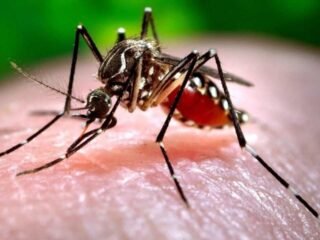New Delhi, 08 July 2025: Obesity has long been linked to several chronic conditions, including heart disease and certain types of cancer. But new evidence shows a concerning overlap that specifically impacts women — those who already have heart disease and also have a high Body Mass Index (BMI) may face an increased risk of developing breast cancer. This double burden is alarming because both conditions share several underlying mechanisms such as inflammation, hormonal imbalances, and metabolic dysfunction. While heart disease is often considered a separate threat from cancer, in women with existing cardiovascular issues, a high BMI may fuel a biological environment that fosters the development of breast tumors, especially after menopause. Understanding this connection is essential, as it highlights the need for integrated care and proactive lifestyle changes to lower combined risks.
The Role of BMI in Women’s Cancer Risk
BMI is a simple yet significant measure of body fat based on a person’s height and weight. Women with a BMI over 25 are considered overweight, and those above 30 fall into the obese category. Excess body fat, especially around the abdomen, leads to increased production of estrogen, insulin, and other hormones that can encourage the growth of breast cancer cells. In women already struggling with heart disease, this hormonal activity is often intensified by chronic inflammation and poor metabolic health. Fat tissue itself acts like an active endocrine organ, secreting substances that disrupt normal cellular functions. This hormonal chaos doesn’t just strain the heart — it also creates an environment where cancer cells can thrive. Postmenopausal women are particularly vulnerable, as their body’s natural estrogen drops and fat tissue becomes the main source of estrogen, further increasing the risk of hormone-receptor-positive breast cancer.
Why Women With Heart Disease Need to Be Extra Cautious
Heart disease changes the body in ways that go beyond the arteries and the heart muscle. It often leads to reduced physical activity, medication side effects, weight gain, and systemic inflammation — all of which contribute to a higher BMI. For women, this combination becomes even more dangerous, because it also raises the likelihood of developing other illnesses like breast cancer. Additionally, some of the medications used to treat heart disease can affect hormone levels, weight, and metabolic function, adding another layer of complexity. These overlapping factors create a vicious cycle: obesity increases the risk of heart disease, and in women who already have it, the added weight further elevates the risk of breast cancer. This makes it essential for women to not only manage their heart health but also monitor their weight, dietary habits, and cancer risk factors more closely.
Taking Charge: What Can Be Done to Reduce the Risk
Prevention and early action are the most powerful tools women can use to reduce the combined risks of obesity, heart disease, and breast cancer. A healthy, balanced diet low in processed foods, sugars, and unhealthy fats can help maintain an ideal BMI and improve cardiovascular function. Regular physical activity, even in small amounts, supports heart health, aids in weight management, and improves hormonal balance. It’s also important to manage stress, get adequate sleep, and avoid smoking or excessive alcohol, all of which play a role in cancer and heart disease risk. Regular screenings — including mammograms and cardiac check-ups — are vital, especially for women who fall into high-risk categories. The key lies in recognizing that the body doesn’t compartmentalize health threats. Obesity, heart disease, and cancer are interconnected, and a holistic approach to health is the best defense against them all.







